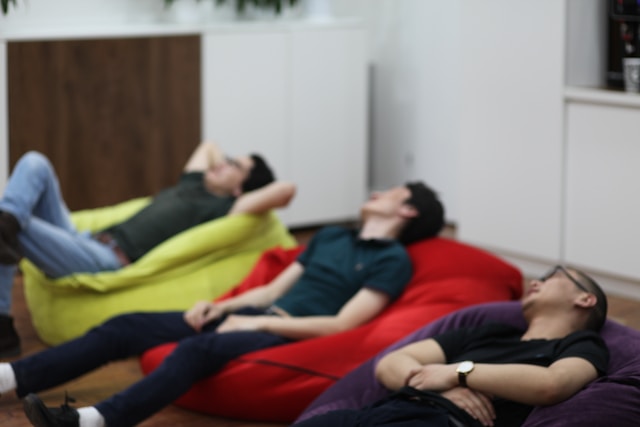
Sleep Apnea: Your Questions Answered
Sleep apnea is a common sleep disorder that affects millions of people worldwide. If you or someone you know is struggling with sleep apnea, you likely have many questions about the condition, its symptoms, and the available treatment options. In this article, you will find the ultimate guide to choosing the perfect sleep apnea mask. We will also address some of the most common questions people have about sleep apnea.
What is Sleep Apnea?
Sleep apnea is a sleep disorder characterized by repeated interruptions in breathing during sleep. These interruptions, called apneas, can last for several seconds to minutes and may occur 30 or more times per hour. There are three main types of sleep apnea:
1. Obstructive Sleep Apnea (OSA): The most common form, OSA occurs when the muscles in the back of the throat fail to keep the airway open during sleep. This leads to partial or complete blockage of the airway, causing breathing to stop temporarily.
2. Central Sleep Apnea (CSA): This form of sleep apnea is less common and occurs when the brain fails to send the proper signals to the muscles that control breathing.
3. Complex Sleep Apnea Syndrome: Also known as treatment-emergent central sleep apnea, this type occurs when someone has both obstructive and central sleep apnea.
The American Academy of Sleep Medicine and the National Sleep Foundation are excellent resources for more information on sleep apnea and other sleep disorders.
What are the Symptoms of Sleep Apnea?
The most common symptoms of sleep apnea include:
– Loud snoring
– Gasping or choking during sleep
– Pauses in breathing during sleep
– Frequent awakenings during the night
– Excessive daytime sleepiness
– Morning headaches
– Difficulty concentrating
– Irritability or mood changes
– Decreased libido
It is important to note that not everyone who snores has sleep apnea, and not everyone with sleep apnea snores. If you suspect you or a loved one may have sleep apnea, it is essential to consult a healthcare professional for proper evaluation and diagnosis.
How is Sleep Apnea Diagnosed?
To diagnose sleep apnea, a healthcare professional will review your medical history, perform a physical examination, and may recommend a sleep study. A sleep study, or polysomnography, is a non-invasive test that records your brain waves, heart rate, breathing, and other physiological functions during sleep. Sleep studies can be conducted in a sleep center or at home, depending on the severity of your symptoms and your healthcare provider’s recommendations.
The American Sleep Apnea Association provides more information on sleep studies and how to find a sleep center near you.
What are the Treatment Options for Sleep Apnea?
There are several treatment options available for sleep apnea, depending on the severity of the condition and the specific needs of the individual. Some of the most common treatments include:
Continuous Positive Airway Pressure (CPAP)
CPAP is the most common and effective treatment for moderate to severe obstructive sleep apnea. It involves wearing a mask over the nose and/or mouth during sleep, which is connected to a machine that delivers a continuous flow of air to keep the airway open. This prevents the airway from collapsing and allows for normal breathing during sleep.
Sleep Apnea Masks
There are several types of sleep apnea masks available for use with CPAP therapy, including:
1. Nasal masks: These masks cover only the nose and are the most common type of mask used with CPAP therapy. They are suitable for people who breathe primarily through their nose during sleep.
2. Full-face masks: These masks cover both the nose and mouth and are ideal for people who breathe through their mouth during sleep or have difficulty using a nasal mask due to nasal congestion.
3. Nasal pillows: These are small, cushioned inserts that fit directly into the nostrils, providing a more minimalistic and less intrusive option for those who find traditional masks uncomfortable.
It is essential to find the right mask for your comfort and treatment needs, as this can significantly impact the success of your CPAP therapy. Your healthcare provider or a sleep specialist can help you choose the best mask for your situation.
Oral Appliances
Oral appliances, also known as mandibular advancement devices, are custom-made dental devices that reposition the lower jaw and tongue during sleep to help keep the airway open. They are typically used for mild to moderate obstructive sleep apnea and can be an alternative for those who cannot tolerate CPAP therapy.
Lifestyle Changes
In some cases, lifestyle changes can help improve sleep apnea symptoms. These may include:
– Weight loss: Excess weight, particularly around the neck, can contribute to airway obstruction during sleep. Losing weight can help alleviate sleep apnea symptoms in some individuals.
– Positional therapy: Sleeping on your side instead of your back can help prevent the airway from collapsing during sleep.
– Avoiding alcohol and sedatives: These substances can relax the muscles in the throat, increasing the risk of airway obstruction during sleep.
– Practicing good sleep hygiene: Establishing a regular sleep schedule, creating a relaxing bedtime routine, and ensuring a comfortable sleep environment can all contribute to better sleep quality.
Summary: Ultimate Guide to Choosing the Perfect Sleep Apnea Mask
Sleep apnea is a common sleep disorder that can have significant impacts on an individual’s health and quality of life. If you suspect you or a loved one may have sleep apnea, it is essential to consult a healthcare professional for proper evaluation and diagnosis. Treatment options, such as CPAP therapy and sleep apnea masks, can help manage the condition and improve overall health and well-being.
Related Topic: Alternative Solutions for Sleep Apnea Treatment without CPAP



